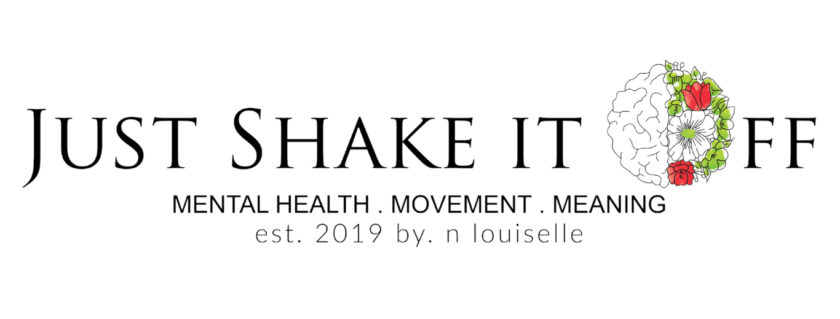“Harmless” comments can actually be hurtful, so choose well… Advice on what to say and what not to say when trying to offer support.
I shared on Facebook a few weeks ago that I had been invited to participate in a three-month testing phase with “The Mighty” for a new contributor’s format they’re hoping to launch. This would be my first compensated work and I was honored to be considered. To participate, I had to commit to producing two pieces of original content each month. One of the pieces I could choose myself, the other piece would be an assigned pitch from my editor. I haven’t had writing assignments or writing deadlines since college. I experienced a good measure of nervous anticipation surrounding my second piece for October, which was due last week. I wanted to submit quality work to my editor and I also wanted my friends and family to like the piece I wrote.

But, my assigned pitch was proving to be a tug-of-war between these two self-imposed criteria. And here’s why. My assignment was to turn in an article titled “What Not To Say To Someone With Parkinson’s… 9 Harmless Comments That Can Actually Hurt”. As I worked to recall some of the comments that had been said to me in the two years since my diagnosis, I was pleased. Pleased first with my ability to actually recall information when summoned and pleased next with the amount of content I would be able to submit to my editor.
Then the internal battle began. As this information and these comments made their way from my thoughts to my computer screen, I saw the faces of my friends and my family and my readers…the faces that looked at me with such love and concern as they spoke these very words. The words that I was going to now pen and publish as sometimes “hurtful”. I feared then, and I fear now, that I’m going to upset you…that I’m going to stir up feelings of guilt or embarrassment if you happened to speak any of these words to me. I worry about this because I know that it is exactly how I would feel if I learned, after-the-fact, that the words I spoke from a place of kindness, concern, and love were actually perceived as the opposite by someone I cared about.
Please…hear this, read this, and re-read what I’m about to say as many times as you need.
You did not hurt me. Your words did not hurt me. I was already hurting. My Parkinson’s diagnosis did that.

In the early days, weeks, and even months following my diagnosis I believe I may have gone went a bit numb. I built walls and I shut down as I stumbled my way through the reality of my diagnosis. It was a desperate and fear-filled time and I didn’t know how to handle it any better than what I had cobbled together behind those walls. It was only as I worked my way over, under, and around these walls that I remembered these words from Maya Angelou that I had read and tucked away years ago.
“Do the best you can until you know better. Then when you know better, do better”.
And THAT is what this piece is about…what this list is about. A way to say things better. It is not for one second about making anyone feel guilty or embarrassed about things already said. When we learn of someone we know receiving a life-changing diagnosis or life-altering news, we say to them what we have been taught or conditioned is polite and helpful to say. We say to them what we know and we do the best we can. My piece below has been deemed quality content by my editor and is officially approved and published. My deepest hope now is that my piece will be accepted in the manner it is intended and will be equally approved by my friends and family and readers. Because…when we all know better, we can all do better.

“Words can inspire. And words can destroy. Choose yours well.” – Robin Sharma
Receiving a Parkinson’s Diagnosis is not easy. Nor is sharing that news with your friends and family. I would imagine it may be equally as challenging for these friends and family to know just what to say to a newly-diagnosed loved one. Faced with this situation, you hope that you will be able to say just the right thing while also balancing your own emotions and questions. In this moment, it could be very easy to confuse what is helpful to the person with Parkinson’s with what feels helpful to you. So what kind of things ARE helpful? What could you say instead?

to say or not to say…
not to say: You don’t look sick.
to say: You look really good. I hope you’re feeling good today.
Parkinson’s truth…some days, the appearance of a person with Parkinson’s may not outwardly match the traditional signs we think of as “sick”. Also, Parkinson’s truth…Parkinson’s is always with us. All day, every day. Saying “you don’t look sick”, minimizes the symptoms we feel every day that are invisible to you. Hearing you say how good we look while also recognizing that we are hiding much of our disease from everyone goes a long way in making us feel seen and heard.
not to say: I know how you feel.
to say: I don’t know much about Parkinson’s. When you’re up to it, I’d love to learn more.
You’re human You want to make connections. You want to feel close to those around you. So, you try to make that connection by saying “I know how you feel”. But you don’t. You don’t have Parkinson’s. You can’t know how I feel.
not to say: Let me know if there’s anything I can do to help you.
to say: I’d love to make dinner for your family. Would Tuesday evening be helpful?
An open-ended offer is extremely thoughtful and generous. But, a tangible task and a concrete date allow us to truly determine if it would be helpful. And, it leaves the door open for us to say yes or no. This is a gift we will be thankful for each and every time.

not to say: I didn’t invite you because I figured you would probably cancel.
to say: I would love to get together for lunch on Friday, but I completely understand if you need to cancel last minute.
People with Parkinson’s NEVER know how we’re going to feel from hour-to-hour…let alone from day-to-day. But we want to be invited and included. We yearn for our former social lives. But we also need your gentle understanding when the unpredictability of this monster intrudes on our plans.
not to say: You seem great. Your Parkinson’s must be getting better.
to say: I love your shirt/bag/jacket. That color/style/shape looks great on you.
Parkinson’s truth…it doesn’t. get. better. Parkinson’s is a neurodegenerative disease. My nerve cells will deteriorate over time…hopefully slowly…and my disease will progress. Are some days better than others? Absolutely! And I celebrate those days every chance I get. But, my Parkinson’s will not get better. Plain and simple. Also plain and simple…I’ve missed you. It’s so good to see you. So let’s chat about where you got that knockout bag.
not to say: It could be worse.
to say: I’m sorry you’re going through this.
This one. The intention behind it is sincere. I completely understand. You’re trying to help me see beyond my own negative thinking and realize that my situation is not so bad compared to other devastating illnesses. But…saying “it could be worse” actually minimizes the very real pain, frustration, isolation, and fear I am feeling. An authentic “I’m sorry you’re going through this” and “You’ll be in my prayers” goes a very long way.

not to say: Are you sure that you should be taking all that medicine? Have you tried A/B/C/D instead?
to say: It sounds like you have done a lot of research and have a great team caring for you.
Do I like taking so many medications…every day…several times a day? Absolutely not. Because of these medications, do I find a slight respite from some of the debilitating symptoms I currently experience? Yes…I do. Will I continue taking these medications while also researching other options? Absolutely. The most helpful thing you can say or do in regards to this topic is to simply let me know that you’re happy I’ve found something that is working for me.
not to say: You’re going to be fine.
to say: I would love to help in any way I can.
Short of a cure…I will be living with Parkinson’s for the rest of my life. This is not a bad case of the flu that will simmer down in 7-10 days. Or a broken bone that will heal after 6 weeks in a cast. Help me acknowledge this…help me own this…and help me through the rollercoaster of my journey.
not to say: You just need to think positively.
to say: I wish I had something helpful to say, but I’m at a loss right now.
If you want to help, but don’t know what to say that could be helpful…then simply say that. Simply tell me, “I don’t know what to say.” Not knowing what to say and admitting it is always going to be better than saying something ugly that you can’t unsay. Always.
Knowing what to say is never easy. I get it. I’m a people-pleaser…a fixer. I always want everybody to feel good about themselves and I know that I have been in situations where the things I have said have done just the opposite. I’m hoping my journey and the authenticity with which I try to write can be of some help and guidance for others facing these same unfamiliar situations. And if you find yourself in a moment where any and all words fail…then just simply listen.




Like!! Really appreciate you sharing this blog post.Really thank you! Keep writing.
Great read! Being supportive, listening to others and having a positive attitude is very important. Thanks!
Thank you for taking the time to read and reach out! ❤️
Thank you so much Nikki for sharing your advice on what to say and what not to say to someone with a chronic illness. I really like your non-judgmental attitude towards people that mean well but say things that aren’t helpful. Still, my wife who has multiple autoimmune conditions gets very frustrated with longtime friends and family members whom you think would know better by this point but don’t. I’m not sure whether it’s cluelessness, lack of empathy, or the fact that my wife – when she gets dressed up and has some caffeine to give her a jolt of energy – can briefly pass for someone not afflicted with these conditions, which causes people to be fooled by her appearance. Hey, even I’m fooled sometimes. I’m definitely going to share your post with her. Keep on speaking your truth!
Jeff –
Thank you so much for taking the time to read my piece and for reaching out with such kind words!
I will keep both you and your wife in my thoughts and prayers as you traverse your own journey.
– Nikki
Nikki,
A great article. Helpful! I want to be supportive but individuals in difficult situations but I don’t always know what to say and I don’t want to say the wrong thing. I see me in some of the comments – let me know if I can help but I don’t offer something specific, because I don’t know what that person needs. I look forward to your next article.
Judith
I, too, saw and heard myself in SO many of these as I worked on this piece.
Thank you, Judith, for always reading and reaching out. I always look forward to your insight. ❤️
I think we can always learn better ways to express ourselves especially in a delicate situation. Your words are helpful , sincere and without reproach. Good work!
Carol –
It’s so hard to know what to say when we are filled with questions and concern ourselves.
Thank you for always being so supportive. ❤️
I will listen. Anytime.
Love and prayers for you all.
All the time.
❤❤❤
Love you, Betsy. ❤️